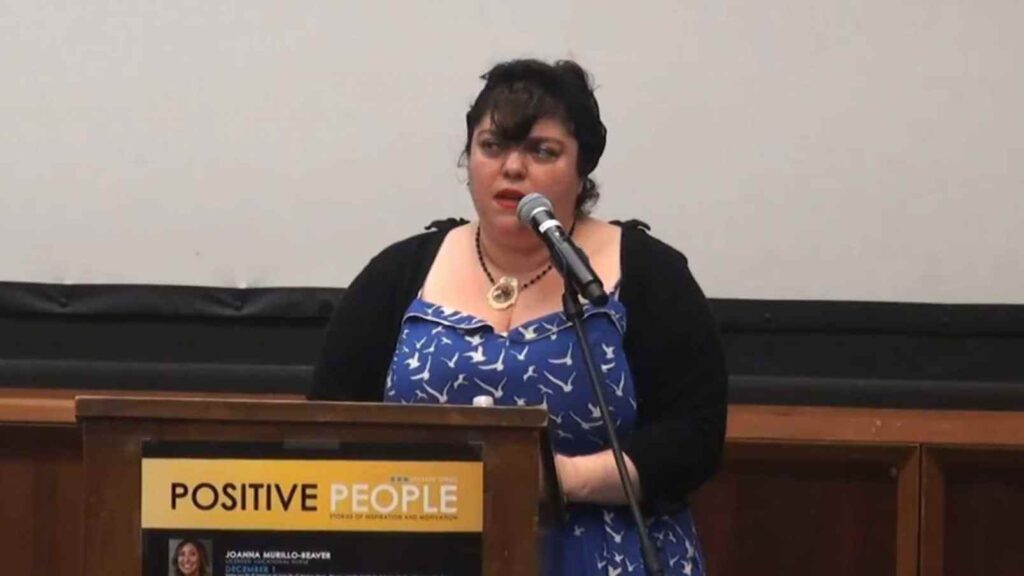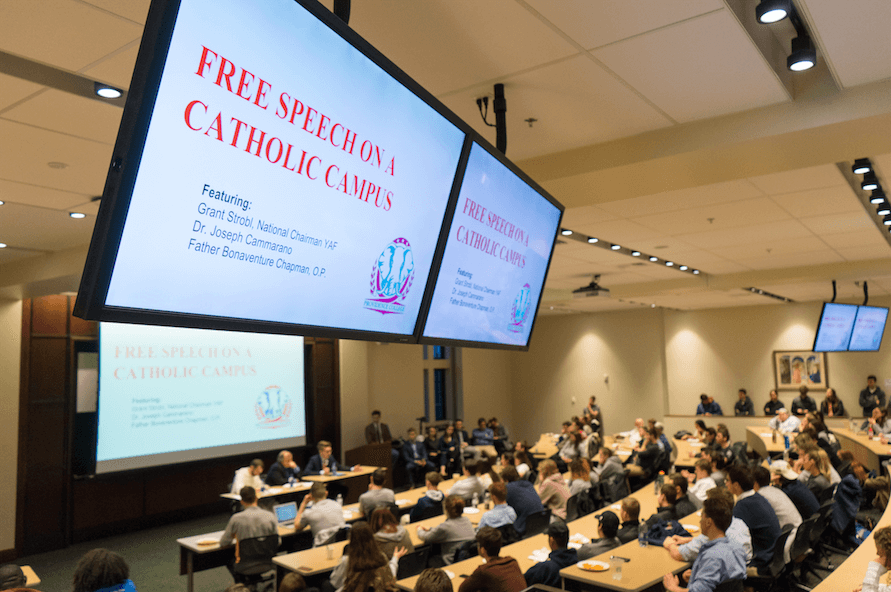Tag: Joshua Chlebowski ’21
Leading By Example: #MeToo Movement Pioneers Must Hold Themselves Accountable
by The Cowl Editor on September 27, 2018
Opinion

Joshua Chlebowski ’21
Opinion Staff
The conflict between #MeToo leaders Asia Argento and Rose McGowan continued to escalate this past week, when Argento’s lawyer threatened to file a libel suit over remarks McGowan made regarding sexual assault allegations against Argento.
Perhaps the most disheartening aspect of this situation is the apparent belief of Argento that she, as a leader of the #MeToo movement against sexual assault, is above speculation and reproach.
Acting in such a way jeopardizes such a powerful and important movement. When leaders refuse to subject themselves to the standards they fight for, it does not go unnoticed. In fact, it casts doubt on whether they actually believe what they argue for, or whether they are only willing to fight for justice until it encroaches on their reputation.
Those in positions with the power to steer social movements must recognize that the movement will eventually surpass individual leadership, carried forward on the shoulders of believers and participants.
While the position of a leader is paramount to getting social movements off the ground, they must conduct themselves in a manner that will uphold the values of the changes they are proposing. “Lead by example” is the principle often taught to children in an effort to guide them to become effective role models. It is a shame that this lesson is increasingly forgotten when it comes to political and social reformist leaders.
When it comes to a movement such as #MeToo, its force comes from exposing the rampant sexual misconduct in many aspects of social and professional life. Therefore, it is just as important, if not more, for the leaders to recognize their ultimate responsibility to living out an illustrative lifestyle.
For Argento to not only attempt to hide her past but to also threaten those reminding her of the double standard, she seems to be making a mockery of the very value that is central to the #MeToo movement: accountability.
The #MeToo movement has been responsible for exposing the heinous actions of Les Moonves, Kevin Spacey, and Harvey Weinstein. Each of these individuals thought they were above any possible repercussions, and their fall from grace has been swift and decisive.
As Argento finds herself following in the footsteps of such individuals by denying and attempting to minimize the scale of her actions, she is losing the support of a movement she helped get off the ground.
The ways in which the claims against Argento are handled will define the boundaries of the #MeToo movement in the coming years. If allegations against Argento suddenly disappear, or if she is not held accountable and refuses to recognize her involvement in these allegations, the #MeToo movement will hit a barrier point.
Argento, if not held to the same standards and not faced with the same backlash of aforementioned perpetrators of sexual assault, will set a dangerous precedent of #MeToo, in that those who head such an important movement get a “free pass,” and can hide behind their contributions as a deflection from their actions.
It is only if allegations against Argento are taken as seriously as other situations that the #MeToo movement will prove just how powerful it is.
Nobody should consider themselves above the law, and Argento’s reckoning will solidify one of the goals of the #MeToo movement: that those in positions of power are held accountable for their actions, no matter how agreeable their personality may seem.
Every crusade has its critical moment, and for the #MeToo movement, this may be it. #MeToo was formed to hold everyone accused of sexual misconduct accountable; it is currently tasked to hold one of its own to these same standards. Whether or not an individual led a revolutionary movement should not determine which standards they are held accountable to.
If one is going to advocate for widespread responsibility, they must make sure that they hold themselves to the same standard. Acts of hypocrisy are the quickest way to undermine all of the good that has been hard-won.
Journaling: A Chance for Self-Discovery
by The Cowl Editor on September 13, 2018
Opinion

by Joshua Chlebowski ’21
Opinion Staff
Writing is an integral part of any college experience, be it a research or textual analysis paper.
Many students come to dislike, if not resent, writing assignments of any kind due to the pressure and high expectations of these pieces. It is important to note, though, that writing has many benefits outside of the classroom.
Beginning this academic year, incoming freshmen were given small journals on their first night at Providence College.
With prompts and thought-provoking questions such as “what are my intentions for the day,” and “what am I grateful for today,” these journals are guides to help incoming students remain true to themselves and to be reflective throughout their first year of college.
The unfortunate truth of the matter is that this program is often overlooked by students, who seek to merely complete the journal for brevity as opposed to quality and depth.
Students who opt to do this may see themselves as saving time when they are in fact missing an opportunity to de-stress and to grow.
Journaling and translating thoughts into writing is an extremely beneficial practice that more students should experiment with.
Writing for personal growth, unlike the writing encountered in the classroom, has no set rules or guidelines.
Writing as a means of self-expression can take many forms, be it writing poems, songs, or simply journaling at the end of a long day.
The process of committing emotions, concerns, frustrations, or blessings to paper can feel as though one is removing a weight from themselves.
No longer are those loose thoughts bouncing around inside, they are released into the world through the act of putting pen to paper.
The beautiful thing about writing for personal growth is that the writer controls how detailed they want to be.
Their writings can be shared or kept private, fodder for a new novel or just a simple mental health check at the end of the day. Depending on the purpose for writing, the style and tone of one’s words may change.
For those who may not find it easy to open up to others, even close friends, journaling can provide another outlet.
Within the confines of the journal, anything written is sacred and remains on the page once the pen has been capped and the journal closed.
Journals provide spaces to work out ideas or emotions, to confront the deepest insecurities, or to celebrate exciting life developments.
Journals can be written and kept to look at later, or simply used to work through temporary problems and thoughts, then hidden away and forgotten about.
Every person who commits their thoughts into writing does it for a different reason, and these reasons provide the guiding vision as to the way in which the journal will be used.
To speak directly to members of the class of 2022, give these journals a chance. Take those couple seconds to consider what thoughts come to mind before writing them down.
Do not allow the pressure from peers to rush a process that can prove to be instrumental in keeping one’s mental health in check.
Whether these journals are discarded after the year or are kept for years down the line, taking the extra time now will make all the difference when it comes to personal growth.
To students who are not engaging in this mandated monthly journaling process, consider keeping a journal, no matter how informal it may be.
While writing nightly may not be for everyone, it is certainly a practice worth trying for at least a few days.
Even if it does not become a part of one’s nightly routine, one may be surprised at how much they can discover about themselves through the process.
Tangents and Tirades
by The Cowl Editor on August 30, 2018
Opinion

Outreach Inspires Individual Growth
There is something to be said for the naiveté and free-thinking nature of children. The laws of reality that adults have learned to abide by do not stop the young mind’s creativity.
Simply spending time around young children helps to reactivate a portion of ourselves which was lost as time passed and lessons were learned.
Involvement in Children’s Outreach, a volunteer program here on campus, was one of the most rewarding experiences I have had here at Providence College.
Spending two hours a week surrounded by elementary-school students allowed my imagination to run free.
No longer were Socrates’ philosophies playing in my mind. Instead, the world became a friendly place with few restrictions. Anything was possible during these brief hours.
Volunteer programs such as Children’s Outreach, PC Pals, and FriarServe allow individuals to get to know their local Providence home, as well as give back to the same community which provides so many opportunities and memorable experiences.
Whether you are an education major or someone who just enjoys working with children, there are plenty of campus groups that allow you to get involved in our local community.
In an environment where tasks and class assignments can often be a burden on an individual, volunteering with local students can provide relaxing and rewarding settings where young minds run wild, and old ones are refreshed by the unrestricted thoughts they find themselves surrounded by.
-Joshua Chlebowski ’21
First Day Jitters-Not Just a Freshman Problem
As another new semester begins, it’s important to remember that first-day jitters are normal for all college students—freshmen and upperclassmen alike.
Too often, college students are under the impression that being an upperclassman automatically means that you have it all figured out.
However, that assumption is not true, and it creates an unnecessary and harmful sense of pressure.
Freshmen obviously deal with all of the stresses that come along with being in college for the first time: making new friends, living in a dorm, and adjusting to college-level classes.
Being an upperclassman brings its own new set of challenges. With graduation on the horizon, one has to consider what the future and post-college life has to offer.
But freshmen and upperclassmen can also face similar struggles adjusting to campus life, missing friends and family from home, and getting into a routine with classes and activities.
It’s important to remember that at the end of the day, no one really has it figured out. And that is okay! First day jitters, whether we are freshmen or seniors, are to be expected.
When we acknowledge this, we not only learn to give ourselves a break, but we also learn to act with more compassion within our community.
-Laura Arango ’20
Professors Have Free Speech Too
by The Cowl Editor on May 3, 2018
Opinion

first lady Barbara Bush. Photo courtesy of Frontpage Mag.
Where should we draw the line between censorship and free speech?
Fresno State University professor Randa Jarrar recently made headlines after she shared her opinions on the recently deceased former first lady Barbara Bush.
Almost immediately afterward, she faced an overwhelming critical response. People not only took offense to her comments, but were also abhorred by the fact that these words were coming from an educator’s mouth.
The heart of the issue here is a seemingly simple, well-intentioned rule for educators throughout the United States: professors’ personal opinions have no place in the classroom.
This is done in an attempt to provide an unbiased education that forms free-thinking individuals. Since younger students are more susceptible to the influence of adults, such as their teachers, this rule certainly makes sense.
Outside of the classroom, teachers are free to express their thoughts, at least in theory. In reality, this is not the case, as demonstrated by the recent controversy over Jarrar’s tweet. Teachers are expected to follow these classroom rules in their everyday lives as well.
While it is understandable that our nation’s educators should be held to high standards of conduct, as they are handling the minds of the future, it is unfair to expect teachers to censor their opinions on social media.
Our teachers are raising students to be able to think for themselves, yet they are expected to hold back from expressing their thoughts outside of the classroom.
Teachers, like any other people, have opinions. Social media, with appropriate restrictions and privacy settings, would seem the ideal means for educators to have discussions and join our national conversations.
Yes, teachers must keep their social media pages professional in regards to their comments and the photos they post, but at the end of the day, this professionalism should not restrict their ability to share opinions with other individuals.
These opinions are not being shared with their students, and as long as these opinions are not manifesting themselves in the form of biased lessons, there is no reason to expect teachers to censor themselves on these matters.
There certainly are teachers who share inappropriate material on social media, or who allow current students to follow them online. These are quite obvious breaches of professionalism, and such individuals are, without a doubt, in the wrong.
However, this is not the case for Jarrar, as she was expressing an opinion outside of the classroom, albeit on a public Twitter account. Perhaps if her account had been private, such a controversy could have been avoided.
Even if one agrees with her criticisms of the former first lady, Jarrar is an educator, and because she shared her thoughts on a public Twitter account, she has become the target of much anger from conservatives and liberals alike.
While one can argue her language was inappropriate or disagree with her opinion, it is terribly unfair for anyone to claim that she cannot say these things due to her status as an educator.
She did not share her thoughts during a class, and, as an English professor, it hardly seems likely that this opinion would have influenced a particular lesson. Her mistake was believing that she could express an opinion on social media.
No teacher is perfect. It is impossible to expect anyone to not have opinions in this day and age. As a society, we need to grant teachers the same opportunities to share their thoughts with other adults on social media.
As stated before, reasonable standards for online conduct are certainly in order. Expecting educators to constantly censor themselves, however, is contradictory to the concept of free speech.
Our society is one of discussion and debate, and by restricting our educators’ abilities to express opinions online, we are preventing them from fully participating in these national dialogues.
Extra Credit Does Not Mean Extra Learning
by The Cowl Editor on April 26, 2018
Campus

Final grades. Two words that either inspire a flurry of cramming or signal a reward for hours of hard work. With the semester drawing to a close, many students find themselves rushing to attend one of a variety of lectures deemed to have “extra-credit value” by their professors. Events, such as the recent “Freedom of Speech On a Catholic Campus,” fill quickly with students feverishly taking notes to write the standard one-page reflection for extra credit.
While these points may provide a safety net with final exams around the corner, the question of what value these assignments actually provide to students must be asked. Students are being taught to place the value of these events on the number of points to be gained rather than appreciating the message of the speakers.
The heart of this issue lies in the written reflections. Though they provide evidence that an individual was in attendance at a certain event, this is also measured by the attendance sheets that every student signs. In addition to demonstrating a physical presence, it is thought that these reflections will indicate whether or not a student was paying attention to the speaker.
However, the information required for one of these reflections can be obtained within the first 15 minutes of a presentation, as many students simply spit them back onto a piece of paper and hand it to their professor. Once enough information has been recorded, students have no real need to continue paying attention to the speaker, unless they are genuinely interested in the topic.
This brings us to the structure of these presentations and their two-part division. The first part, the main portion, is the actual speech. The second part is a question and answer session, during which students try to sneak out early. When this portion is announced, silence tends to settle as everyone looks to see who actually paid enough attention to form a question with depth.
It would seem that a better way of evaluating whether a student actually paid attention during such a lecture would be to capitalize on the question and answer session. This allows students to spend time focusing on the presentation itself, as opposed to seeking out small soundbites for their reflections and decreases the stress associated with having to rapidly accumulate as many facts from the lecture as possible to prove that one was paying attention.
Focusing extra credit assignments on participation during these lectures as opposed to the regurgitation of facts teaches an important skill. This skill is the ability to think critically about a claim being made and to connect it with other lessons a student has learned. By participating in such a presentation, students will use more brain power to engage the speaker’s claim in a dialogue.
In turn, this will make the presentation all the more memorable and applicable down the line. Reflection papers allow the student to recite facts that can easily be forgotten, but by participating in the lecture through a question and answer session, students will be more likely to carry the message of the presentation with them into later courses or post-college life.
It can be argued that there is not enough time for all the students in attendance to ask questions of the speaker, which is true. If all students were to ask questions, the presenter would be overwhelmed, and evaluating these questions would pose a potential issue to professors.
As before, the reflection pieces contain the key. The nature of these reflections must be changed if these presentations are going to provide any sort of lasting value beyond that of a couple points added to a grade.
Instead of simply focusing on what an individual learned, these pieces must attempt to continue the discussions started in the question and answer sessions. Whether it be simply making a connection between a presentation and a subject raised in class or debating the speakers’ claim, these papers must take on more active tones instead of reciting someone else’s presentation.
If any lasting value is to be derived from these presentations, a shift must be made in these evaluations from mindless summarization to active debate.
